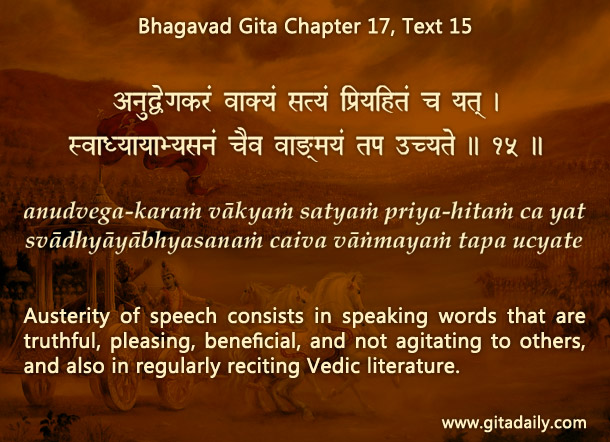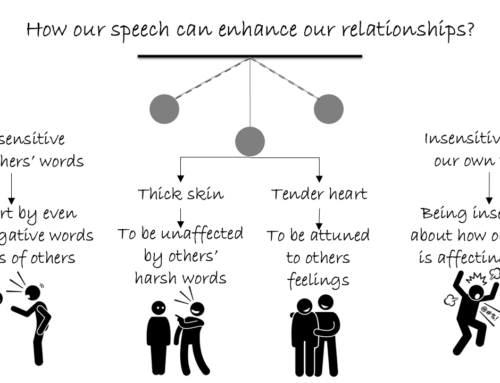Suppose a doctor sees a sick person and decides to offer free treatment in the form of an injection. Suppose further that the patient has had many past injections in the typical bodily parts where injections are given. Knowing that an injection in any of those parts will be inordinately painful, a responsible doctor will take the time to find the least painful point for the injection.
We too need to adopt a similar two-pronged compassionate approach. When we see someone in difficulty, compassion may prompt us to share some truths that can help them deal with their difficulties. While our intention is good, that itself may not be enough. We may need to take time to enquire if that truth may cut too close to a nerve for them. If they have been scarred by any negative experiences associated with that truth, they may find progress especially difficult.
The Bhagavad-gita (17.15) incorporates two-pronged compassion in its direction for verbal discipline. It urges us to speak those truths that are helpful to others. And it urges us to speak those truths that are at least non-agitating and are at best pleasing. The world is anyway an agitating place, and our mind in its reactions to the world’s upheavals often compounds our agitations. In such a setting, if we speak agitating words, even if they are truthful, the resulting agitation may be too much for our audience to take. They may just quit.
By giving due attention to both aspects of compassion — what we do and how we do it — we can help others in a way that actually helps.
One-sentence summary:
Compassion is not just wanting to help others come out of the difficulty they are in; it is also wanting to help them come out of their difficulty in a way that is least difficult for them.
Think it over:
- Why would a doctor offering free treatment still check the patient carefully?
- How does Gita 17.15 demonstrate two-pronged compassion?
- Which aspect of compassion do you neglect? How can you become more balanced?
***
17.15: Austerity of speech consists in speaking words that are truthful, pleasing, beneficial, and not agitating to others, and also in regularly reciting Vedic literature.
To know more about this verse, please click on the image




Leave A Comment